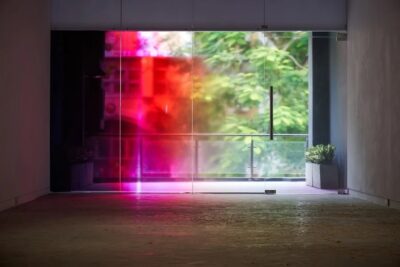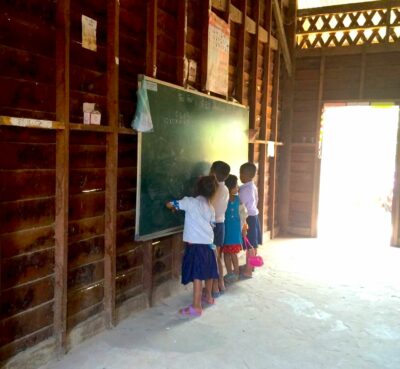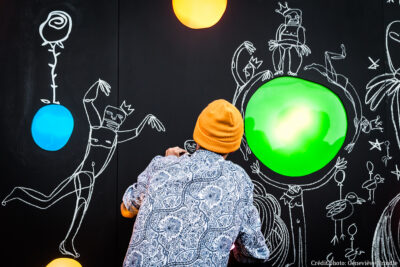Rural development is one of the most recurrent and important concerns we encounter on our travels around the world. Raising the standard of living in local communities, enabling families and inhabitants to stay together through water purification, land irrigation, housing reconstruction, waste collection and environmental care, have become crucial issues. We took a closer look at projects in Argentina, Cambodia and Vietnam.
Divisadero - Cafayate, Argentina - November 2014
Thanks to the involvement in rural tourism of the Salta-based Origins agency, headed by Chantal Bourdais, we met and stayed with Enrique and Carmen, a farming couple in a rural community.
On site, we found that the legal supply canals built by the regional authorities only brought water to the Indians' farms for one day every 24 days, the rest of the month being used to irrigate the valley's wealthy winegrowers. The rest of the month was used to irrigate the valley's wealthy winegrowers.
By dint of their protests, they were able to obtain permission from the authorities to dig an additional canal in parallel, using whatever means they could find, to recover the lost water; this was totally insufficient to supply the hamlet's few farms.
In the company of Enrique, Chantal and other peasants from the community, we set off to assess the state of the system for recovering lost water along the river's course.
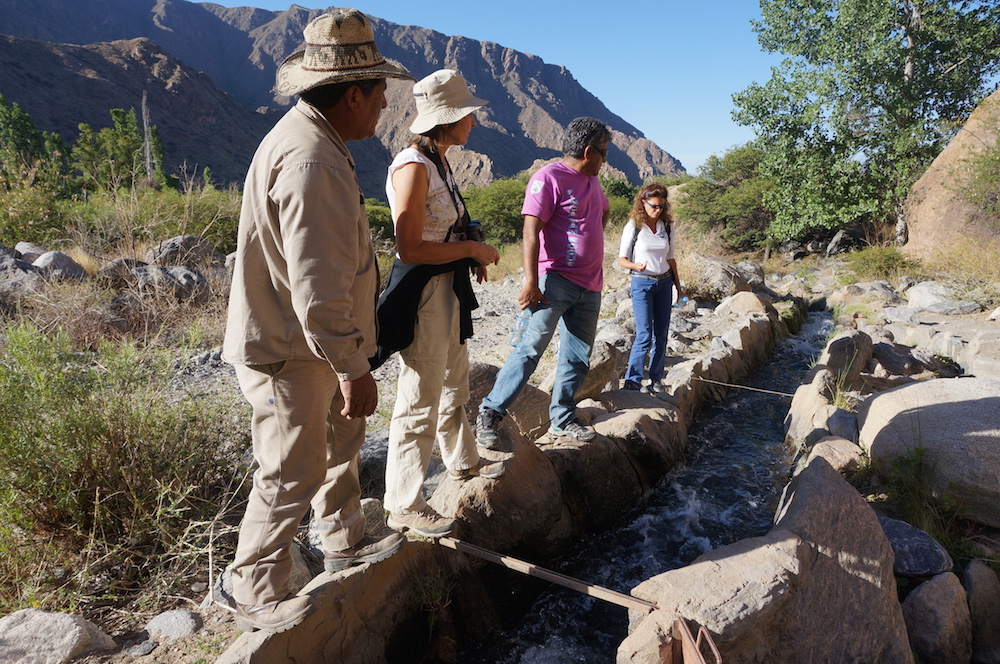
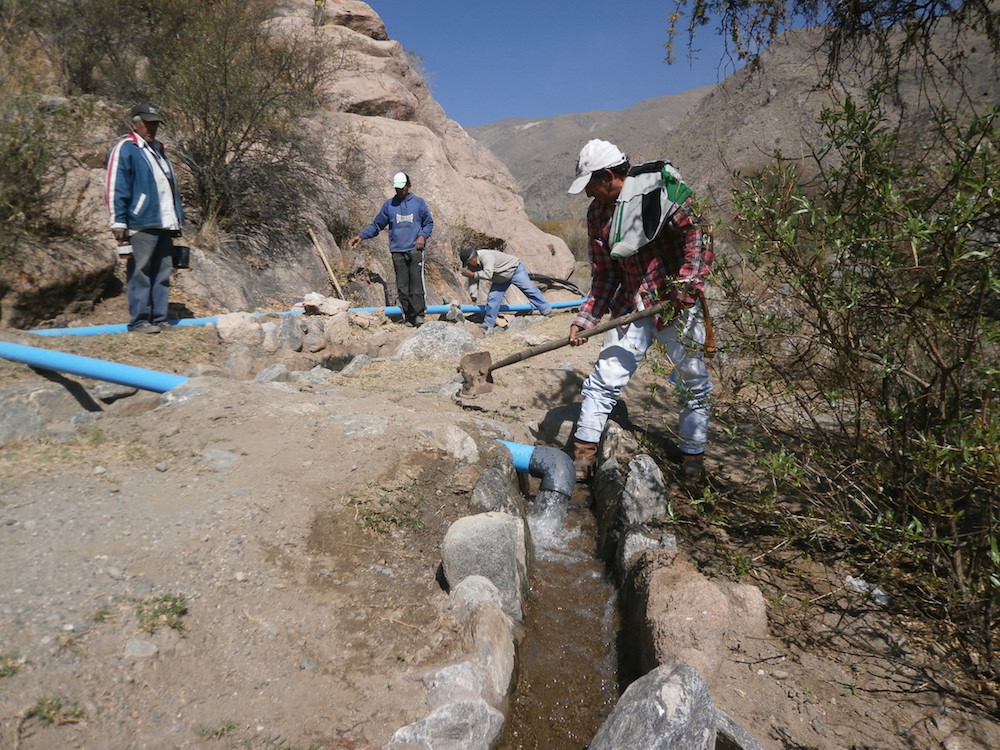
We immediately noticed that water collection was rudimentary and weak, and that transporting the water over open ground led to heavy evaporation, causing a significant loss of the water collected.
It was decided to draw water from further upstream towards the spring, to increase the flow rate on a more regular basis.
Paysages Humains undertook to participate in the purchase of the pipes needed to:
* Go directly to the source of the river
* Avoid all water losses (through leakage and evaporation)
* Distribute the water allocation between the different farmers
We supported the community to cover the costs of this work.
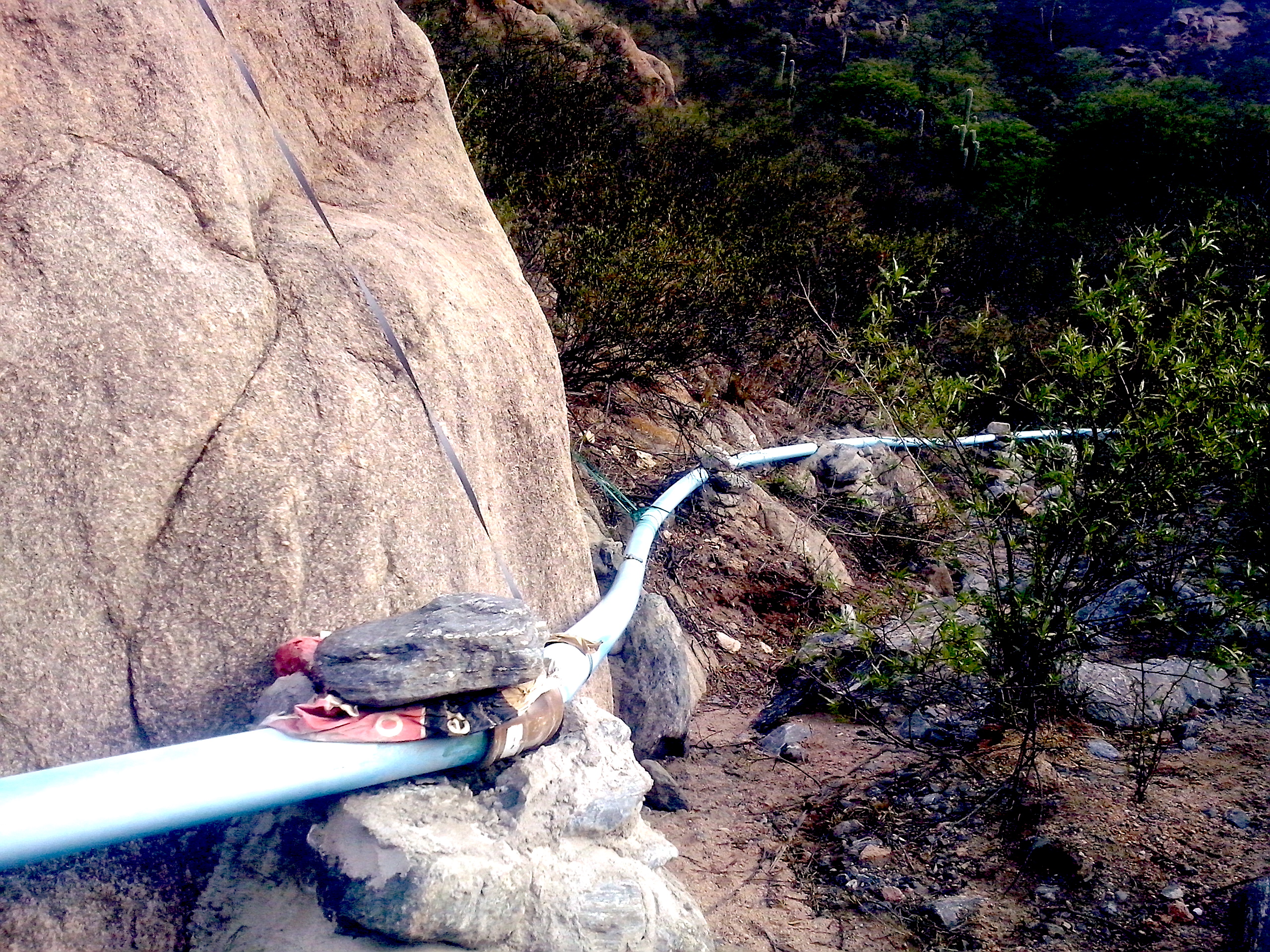
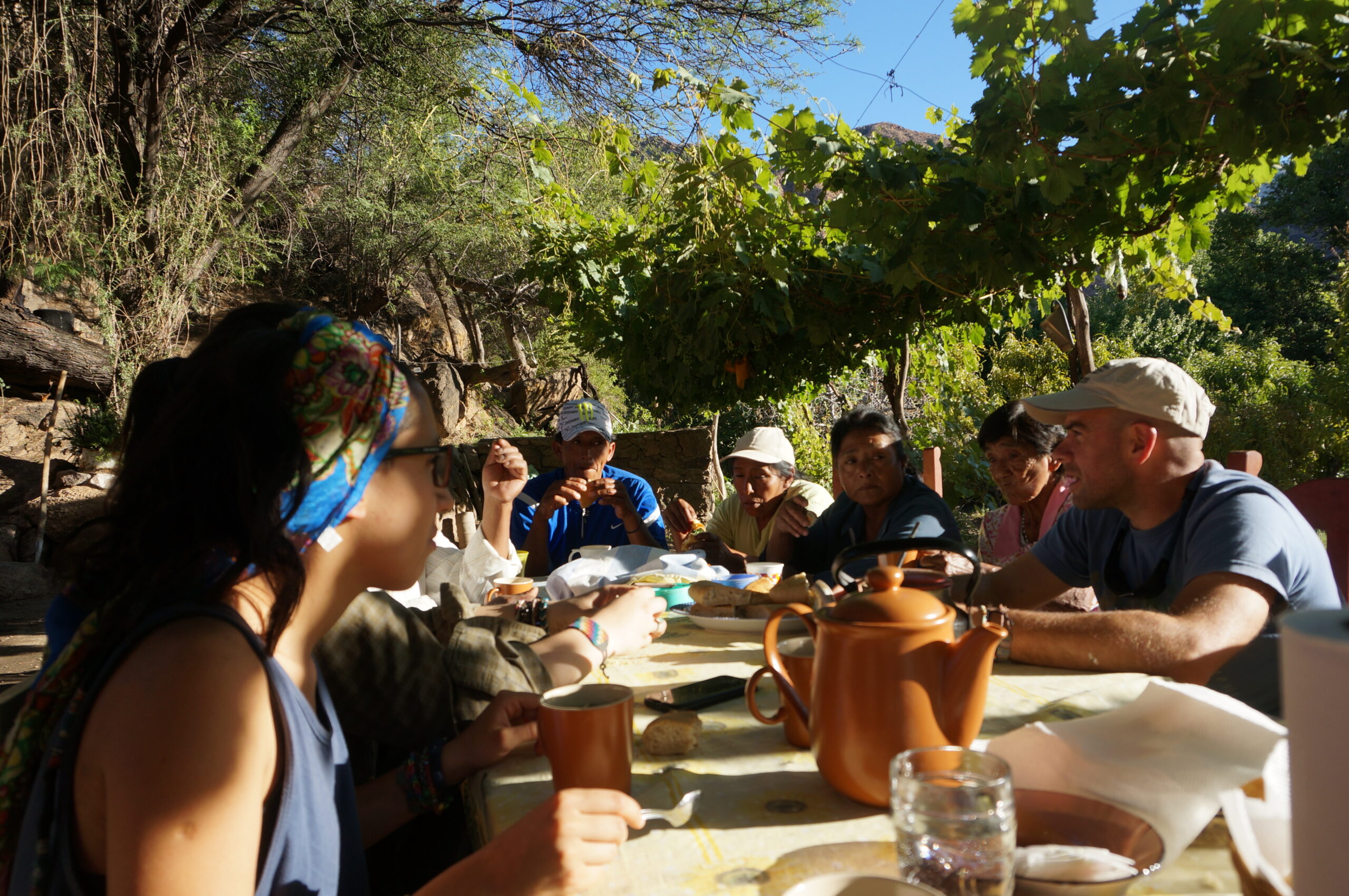
Husk Cambodia - Kompheim, Ankor, Cambodia - March 2016
On the edge of Angkor, the mythical city of the Khmer Empire, Fiona and Anthony Jaensh, owners of Sojourn Boutique Hotel and Beyond Unique Escapes located in Siem Reap, have initiated a project to help the surrounding village communities, including the village of Komphein, known as the "ladybug".
Naming their project HUSK Cambodiatheir aims are simple: access to drinking water, health, education and the environment.
Above all, to enable families to remain in their communities.
HUSK Cambodia, where all those involved are volunteers, only the local Khmer team is paid. Their tourist activities enable them to support the association through donations and a percentage of their profits.
Here are just a few of their projects:
*Support for the Kompheim school community - education is the essential key to breaking the cycle of poverty.
HUSK has created a school where English is taught
* Softies are dolls made by women, uneducated and very destitute, alongside their work in the fields, enabling them to gain a little autonomy
* A children's library opened in 2015 and offers books in Khmer and English
* To alleviate the water problem, Husk has discovered an easy-to-use, low-maintenance, low-cost water pump technique created by American engineers. Each pump is equipped with a filter made up of 3 layers of natural material: sand, gravel and charcoal, which together act as a filter.
*An original "Bottle Buildings " or "Eco Block" project:
The collection of waste outside tourist sites is a serious problem in Cambodia, with increasing negative consequences for hygiene and the environment.
This concept, initiated by Pura Vida, is based on the collection of empty plastic bottles with the aim of making "bricks" to build walls. For example, a school was built with the collection of 15,000 bottles by school groups from the community and outside volunteers.
* In response to unsanitary housing conditions, Husk has built up a support network with students from international schools in cities such as Singapore and Hong Kong to help them rebuild houses made of wood and woven palm leaves.
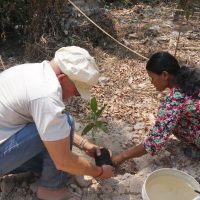
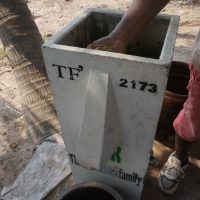
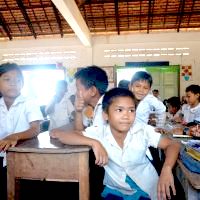
The little houses of Ben Tre - Mekong Delta, southern Vietnam - March 2017
A three-hour drive from Ho Chi Minh City, this part of the Mekong is covered with coconut palms and criss-crossed by canals.
The houses, made of palm fronds, offer no protection against a hostile environment, and wear out quickly.
A project was therefore launched to provide the most destitute with small, solidly-built homes.
The " Friends of Poors " association, headed up in Vietnam by Andrew Duong, has set up this project, supported by seven permanent members and a hundred or so volunteers who criss-cross the country, meeting local residents and acting as intermediaries with local authorities.
All donations received are redistributed to build new, simple, healthy, solid houses.
These are built by local workers under the supervision of the authorities.
In one year, almost 30 houses have been built.
Each one costs around $1,200.
With our friend Hunk from Saigon and Andrew Duong, we went to Bac Lieù to meet new beneficiaries we could support.
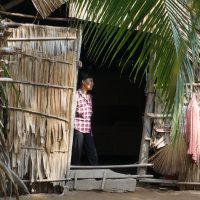
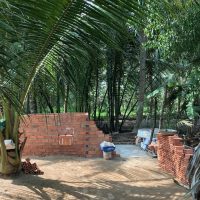
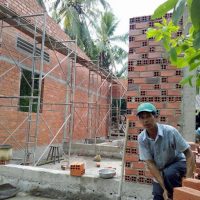



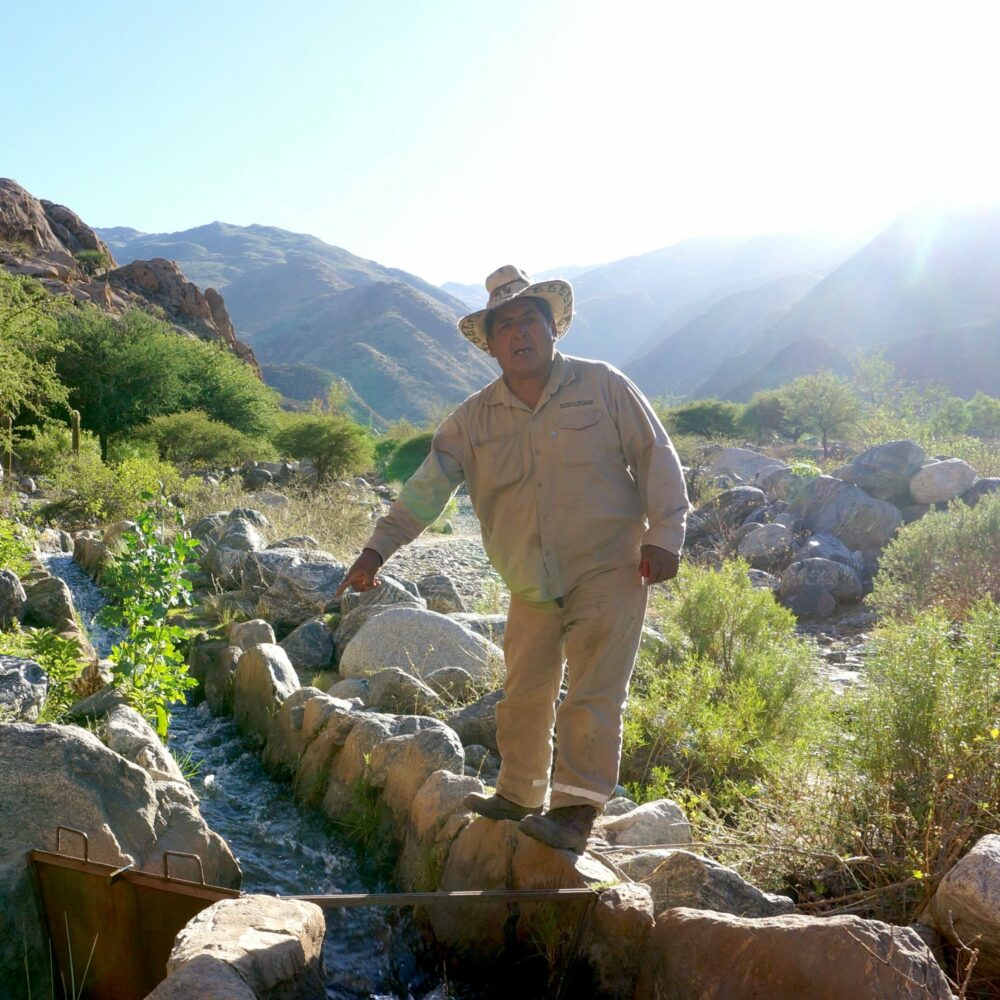)
